Published and translated by the firm Winter – Dávila & Associés
Paris, 3 october 2022

Author: Cindy Johnson
He holds a Master 2 in DROIT DU SPORT from the Université Aix-Marseille. She worked at LOSC Lille as part of her end-of-studies internship, then she was a jurist at AS SAINT-ETIENNE for 5 years, jurist and quality manager at SPORTFIVE INTERNATIONAL (GROUPE LAGARDERE) in Geneva for 4 years, and legal assistant at FONTANET ET ASSOCIES in Geneva for 3 years.
Since August 2020, she has been the Legal Director of Toulouse Football Club.
📍Versions of the article availables in others languages:
🇪🇸 Versión en Español
🇫🇷 Version Française
Do you need lawyers in France? Do not hesitate to contact us!
Observing, listening, asking, analysing, protecting, securing, resolving… always seeking the most effective and sustainable legal balance. These are my missions as a jurist. I carry them out, without magic or idealism, but I question, disturb, even annoy at times, because I can also gain time, relativise, condition and, on rare occasions, prohibit.
As Legal Director of Toulouse Football Club, I defend the decisive role of my department within the club.
Too often I hear people say that legal professionals can only say “no”, under the pretext of a strict application of the rule of law, and that they are therefore a “brake” on the realisation of business projects. Could this be the reason why lawyers are rarely involved at the right time in the structural and decision-making organisation of projects? These are all false and counterproductive prejudices. But the lawyer has to be called in at the right time. We are not only there to solve problems or manage disputes. Above all, we are indispensable for preventing difficulties, mitigating risk and avoiding failure.
YOU CAN ALSO READ: Compensation for sports accidents in France
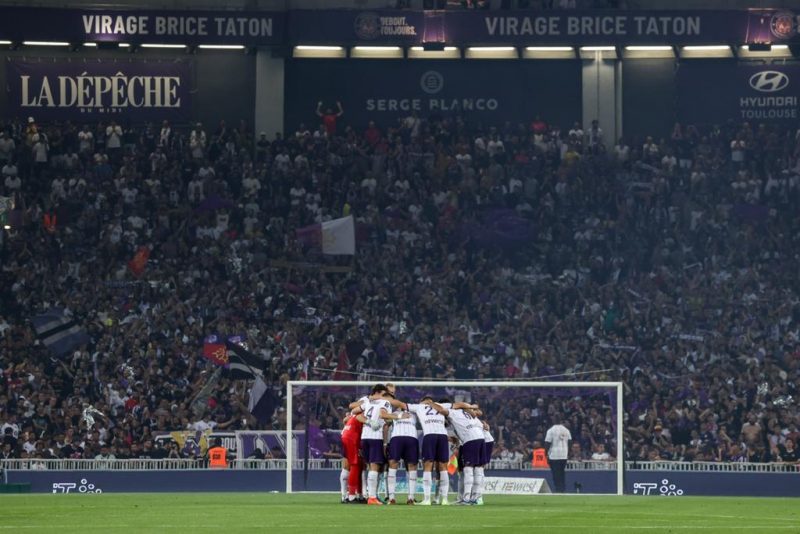
TFC first team players before a match.
My department is in daily interaction with all the Club’s employees. Drafting a partnership contract, an employment contract, a sponsorship agreement, managing insurance contracts, protecting our intellectual property, defending the Club’s interests before the various civil or criminal courts, managing Human Resources issues and staff requests, analysing various and varied dossiers and projects in consultation with the Business Departments (Revenue, Sponsorship, Marketing), managing and supervising the legal aspects of professional player transfer operations, analysing and applying the regulations applicable to our sector of activity, etc. There is no need to draw up an exhaustive list of the missions entrusted to us. It is impossible to list all the tasks we have to perform, especially as our daily work is driven by the dynamics of the Club, its projects and its ambitions. Each day brings with it new challenges.
But these new challenges must also be taken up in the light of the social problems we face. What issue does not have a direct or indirect relationship with the law? What problem do we not try to solve by resorting, at some point, to a legal response? So why should it be any different in the professional football sector? At a time when we are confronted with sensitive issues that are covered by the media, such as violence, discrimination and environmental problems (if we had to mention only a few), how can we not use legal tools to try to find, if not solutions, at least instruments of reflection, supervision and, ultimately, repression?
Everything is legal, either because the employee who contacts us is convinced of the importance of our expertise, or because he finds himself in a situation where he has no choice but to ask us to intervene or, finally, because without really knowing who to turn to, it is obvious (…) that the Legal Department will have the answer. Everything is law.
Starting from this premise, I have “modelled” my Department as the one that should support all the Club’s services. We live as close as possible to all our interlocutors, so we measure the “pulse” of the Club at all times, to provide answers and solutions, taking into account the possible links, interests and/or conflicts that this may create internally or with respect to our external associates. We work in the shadow of the brilliant ideas of some, in the shadow of the media projects of others, in the shadow of the general effervescence of the TFC Institution.
However, we try, on request, by anticipation or by reaction, to be the legal, social and media watchdog of all employee activities, initiatives and reflections. Thus, our missions are structured around three axes: (i) to concretise and secure the sports project, (ii) to support the business activity, and (iii) to promote and implement the company’s culture and its human resources policy.
So, if I were to cite just these examples, we are working on the use of the appropriate legal vehicles to allow the achievement of many of the financial objectives set out in the Club’s annual budgets. We ensure certain stages of commercial, marketing and communication operations. We draft and validate the legal instruments necessary to complete professional player transfers. We ensure the protection and defence of the Club’s brand. We contribute to the implementation of the corporate culture, ensuring that the values we uphold are also in line with legal standards. We ensure that no failure or mistake tarnishes a sporting result. We defend the interests of the Club in all contentious situations.
YOU CAN ALSO READ: Clauses of termination of football players’ contracts in France
The TFC institution must be able to “grow” without fear of being held accountable, and our employees must be proud to belong to the project defended by Redbird Capital Partners.
Therefore, not without difficulty, we must impose the legal dynamic in the minds of our employees. Knocking on our door only when a problem or dispute arises is counterproductive. Not every idea is ideal to develop in certain respects. Not all projects are good to consider from this point of view. Beyond the financial cost, it is also necessary to consider the impacts in terms of liability, obligations, conditions, legal repercussions at other levels of the club, in the short, medium and long term. Ultimately, the decision must be the most appropriate one. Risks, if any, will then be fully assumed and managed.
The contractualisation of a transfer operation is a symptomatic example. The Legal Department intervenes at the end of a long process of monitoring, data analysis and strategic decisions. As part of the ongoing negotiations, we are involved in drafting all the contractual documents that will ratify months of work. This stage is therefore crucial. If a contractual document is not valid, the transfer will not take place. Transfer agreement, employment contract, sports agent agreement… all these agreements must preserve the interests defended by each party, where financial considerations can be diametrically opposed. In accordance with state regulations and FIFA provisions, a transfer operation is therefore a source of considerable intellectual and legal gymnastics, in relation to structural issues: financial aspects, the player’s professional life, reciprocal obligations, media coverage, etc. This is why the Legal Department is responsible for fostering a calm climate of negotiation and contractualisation, interacting with all the protagonists, so that the “mercato” is in line with the sporting project.
Interaction! Without it, my work is useless. Communication and collaboration are essential for the balance I have to create to meet the challenges of my department.
The life of a professional football club highlights the divisions, not to say the antagonisms. Amateur and professional football, media exposure and behind-the-scenes work, society and association, administrative and sporting sectors, significant pay differentials and gender equality. It is absurd to deny that the Club lives for its professional team and its sporting results, but it is equally absurd to deny the vital importance of the work, involvement and investment of the rest of its staff in the overall Club project. One cannot exist without the other, one cannot live without the other, one is not what it is without the other.
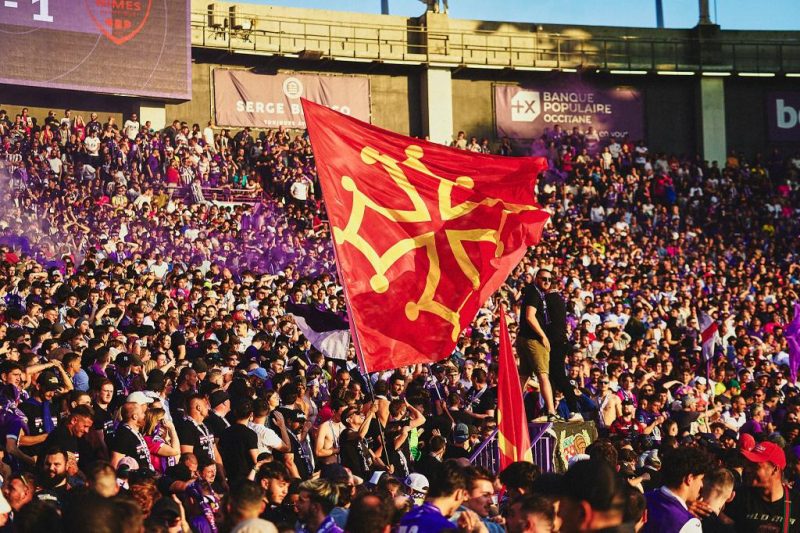
TFC fans
It is therefore essential to maintain management coherence. Everyone must “cohabit” in a professional world that fosters comparisons, frustrations, disappointments, but also ego, condescension and arrogance. Maintaining a sense of belonging to a project that overcomes these divisions and mitigates them, without denying them, is fundamental. To do this, we must adapt our management according to the emotions and feelings of our employees. It is about accepting a reality and integrating it into our corporate culture, thus defining our values through the prism of our emotional intelligence.
This is a real challenge that my department must take up within the Club in the light of the social obligations imposed by our legislation, and in compliance with the Human Resources policy that we have defined.
YOU CAN ALSO READ: Sports Justice in France
I am fully aware of the responsibility associated with the tasks entrusted to me at the Club. As a lawyer, we know that a badly drafted clause, an uncontrolled interpretation or an ill-considered decision can have serious consequences. But for all that, I am passionate and determined. I am passionate about this job, which demands of me constantly, paradoxical as it may seem: analysis, selflessness, control, questioning, awareness of others (and of myself), relationship management, empathy and authority. And determined to act in the service of the Club, to provide it with support, security and confidence, all of which are essential for the pursuit and achievement of our objectives.
If you liked this topic, we invite you to share the article, comment on it and also to visit the rest of publications in the social networks and platforms of Winter – Dávila et Associés
If you want advice related to the subject of the article, do not hesitate to contact us! (email: contact@wdassocies.com)
Original language of the article: French
LEGAL NOTICE: This article has been prepared for informational purposes only. It is not a substitute for legal advice directed to particular circumstances. You should not take or refrain from taking any legal action based on the information contained without first seeking professional, individualized advice based on your own circumstances. The hiring of a lawyer is an important decision that should not be based solely on advertisements.
This article was published by Winter – Dávila & Associés, an international law firm based in Paris, in France, represented by lawyers specialized in sports law, corporate law, arbitration and representation.


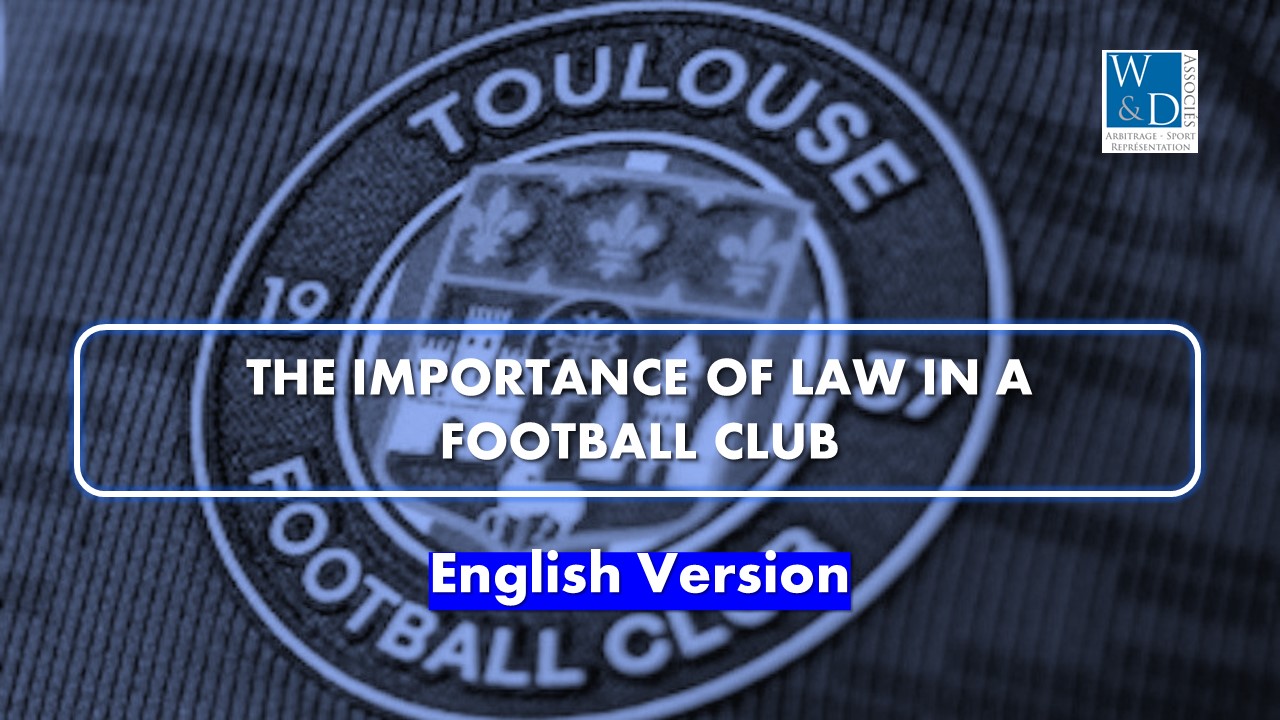

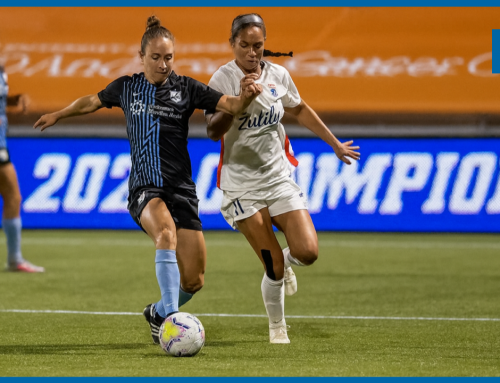
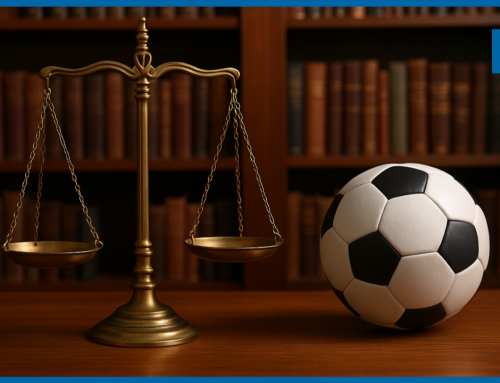


Leave A Comment